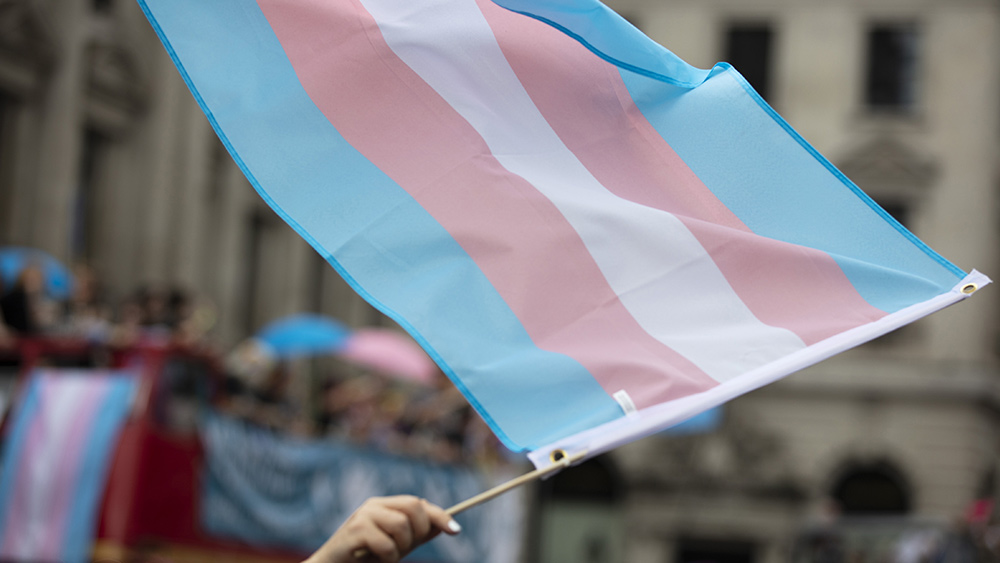The cost of America’s cultural revolution
12/22/2019 / By News Editors

Social-justice ideology is turning higher education into an engine of progressive political advocacy, according to a new report by the National Association of Scholars. Left-wing activists, masquerading as professors, are infiltrating traditional academic departments or creating new ones—departments such as “Solidarity and Social Justice”—to advance their cause. They are entering the highest rung of college administration, from which perch they require students to take social-justice courses, such as “Native Sexualities and Queer Discourse” or “Hip-hop Workshop,” and attend social-justice events—such as a Reparations, Repatriation, and Redress Symposium or a Power and Privilege Symposium—in order to graduate.
(Article by Heather Mac Donald republished from City-Journal.org)
But social-justice education is merely a symptom of an even deeper perversion of academic values: the cult of race and gender victimology, otherwise known as “diversity.” The diversity cult is destroying the very foundations of our civilization. It is worth first exploring, however, why social-justice education is an oxymoron.
Why shouldn’t an academic aspire to correcting perceived social ills? The nineteenth-century American land-grant universities and the European research universities were founded, after all, on the premise that knowledge helps society progress. But social justice is a different beast entirely. When a university pursues social justice, it puts aside its traditional claim to authority: the disinterested search for knowledge. We accord universities enormous privileges. Their denizens are sheltered from the hurly-burly of the marketplace on the assumption that they will pursue truth wherever it will take them, unaffected by political or economic pressures. The definition of social justice, however, is deeply political, entailing a large number of contestable claims about the causes of socioeconomic inequality. Social-justice proponents believe that those claims are settled, and woe to anyone who challenges them on a college campus. There are, however, alternative explanations—besides oppression and illegitimate power—for ongoing inequalities, taboo though they may be in academia.
A social-justice agenda, therefore, is a political commitment, and politics is not disinterested. Indeed, it is often tribal. Such tribalism caricatures political opponents and whitewashes political leaders, ignoring facts along the way, as shown both by the frenzied hostility to Donald Trump on the left and by his elevation to status of wise statesman and paragon of truth-telling by his most enthusiastic supporters, including in the conservative intelligentsia.
In his 1918 lecture, “Science as a Vocation,” Max Weber criticized the conflation of intellectual work with political action: “Whenever the man of science introduces his personal value judgment, a full understanding of the facts ceases.” The primary task of a teacher, Weber said, is to help his students recognize what Weber called “inconvenient” facts—inconvenient, that is, to the students’ party opinions. And for every party opinion, Weber observed, some facts are extremely inconvenient. Our political understanding of the world is partial; we will emphasize certain aspects of reality that buttress our values and deemphasize other aspects that contradict those values. According to Weber, when an academic pronounces on how one should act, he becomes a prophet or demagogue, neither of whom belong on the academic platform.
Weber adduced another reason for abjuring politics in the classroom. Amusingly—an adverb that does not usually modify the great sociologist—it has been rendered completely irrelevant by twentieth-century education trends. A professor should not inflict his politics on his students, Weber said, because those students may not challenge his authority: “It is somewhat too convenient to demonstrate one’s courage in taking a stand where the audience and possible opponents are condemned to silence.” To which one can only respond: if only! Leave aside such student abuse of the adults in charge as the scourging of Nicholas Christakis at Yale, of Bret Weinstein at Evergreen State College, and of Allison Stanger at Middlebury College, among others. The goal of the ordinary classroom today is to get ignorant students babbling about whatever idle thoughts pass through their heads without showing any intellectual deference to their professor. The number of professors who deserve such deference, however, is by now depressingly low, thanks to the triumph of social-justice ideology.
Of course, many people on college campuses today are still “condemned to silence”—not out of any respect for faculty authority but because they disagree with the premises of victim politics. Conservative Harvard law students, a professor there recently told me, refrain from challenging the regnant dogmas in class, terrified that their remarks may end up on social media and thus jeopardize their careers. This unwillingness to air inconvenient facts—facts such as the connection between family breakdown and poverty—is precisely the shrinking of intellectual freedom against which Weber warned. And if a Harvard law student, occupying the closest position to riches, power, and prestige that a university can guarantee, nevertheless feels acutely vulnerable in his dissent from the orthodoxies, what is a lowly undergraduate or even post-doc to do?
How bad is academic politicization? It is overt and unapologetic. At a recent law school seminar on race and the law, the teacher proudly announced at the beginning of the class session: “We are training social-justice warriors here.” Had the professor said: “We are training justice warriors here,” there would have been no problem. Justice warriors seek to realize one of the great aspirations of Western history: to be ruled by neutral principles, rather than tribal partisanship.
In the courtroom, justice warriors pursue this rule of law through the adversarial process, in which both sides are given equal opportunity to advance facts and arguments in their defense. Social justice, however, is opposed to procedural justice. In a year of ever more strident victim rhetoric, one of the most disturbing auguries for the future was the protests at Harvard and Yale law schools against the nomination of Brett Kavanaugh to the Supreme Court. Hundreds of students from our most influential legal academies marched under the #MeToo rallying cry: Believe Survivors, meaning: any self-professed victim of sexual assault is entitled to automatic belief before any evidence is presented to, and sifted by, a neutral tribunal.
A disproportionate number of these elite law students will end up as federal judges, including on the Supreme Court. If they carry their “Believe Survivors” commitment to the bench, due process is doomed. Many criminal law professors have given up teaching rape law, since female students claim to be traumatized by the very thought of a criminal defense in a rape case. Moot court has been similarly constrained; many law students are no longer willing to take on the role of advocate for even an imaginary political incorrect defendant. Harvard’s dean of students, meantime, fired law professor Ronald Sullivan from his job as an undergraduate dorm master this year because of Sullivan’s legal representation of accused sexual assailant Harvey Weinstein. Students and administrators alike deemed this representation an existential threat to the safety of female students in Sullivan’s dorm. We will pass over in silence the maudlin theatrics of such a claim. Its substance is a triumph for social justice, but it is a dagger in the heart of justice. For Harvard’s dean to declare that representing a politically unpopular client renders someone unfit to supervise students betrays the university’s educational mission, which should be to teach students the preciousness of such cultural legacies as the presumption of innocence.
Read more at: City-Journal.org
Tagged Under: brainwashed, culture, diversity, indoctrination, inequality, left cult, political correctness, privilege, social justice, society
RECENT NEWS & ARTICLES
COPYRIGHT © 2018 THOUGHTCRIMES.NEWS
All content posted on this site is protected under Free Speech. ThoughtCrimes.news is not responsible for content written by contributing authors. The information on this site is provided for educational and entertainment purposes only. It is not intended as a substitute for professional advice of any kind. ThoughtCrimes.news assumes no responsibility for the use or misuse of this material. All trademarks, registered trademarks and service marks mentioned on this site are the property of their respective owners.


















